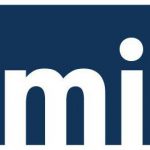Unruly Music’s spring edition
What do the Mojave Desert, a lecturer, a laptop computer, a dancer, and a spring box have in common?
They’re all involved in the upcoming Unruly Music Spring Festival Thursday through Sunday.
Unruly Music explores contemporary trends in chamber music, improvisation, electronic sound, and multimedia, spanning a wide variety of genres and styles. Composer Christopher Burns directs the festival, a co-production of the Peck School of the Arts at UWM and the Marcus Center for the Performing Arts.
In this fest, Unruly presents the largest ensemble in all its seven years. Ensemble Dal Niente, an up-and-coming contemporary music group based in Chicago, will perform the North American premier of Hans Thomalla’s The Brightest Form of Absence on Saturday. Of Dal Niente, Burns says, they’re “young, hungry, doing new things, energetic, and excellent musicians.”
Thomalla based Brightest on sounds and images he recorded of the Mojave Desert and Death Valley. The work is a cycle of songs for 13 musicians, live electronics and solo soprano. Like layers of sedimentary desert rock, Thomalla transforms what he hears to create layers of sound incorporating the recordings as found objects and transformed as composition.
Bringing a work of this scale to Marcus Center Vogel Hall hasn’t been easy. To create a sense of expansive, solitary desert space, the musicians will ring the audience in the balcony. To coordinate their playing with the recordings, the conductor will watch a video that that shows the timings of the electronic music. Special software had to be developed just for this piece, which requires six audio channels to create what Burns calls “sonic architecture” or “virtual space.”
Dal Niente has also collaborated with UWM faculty and advanced students to present their new works on the Saturday program. It includes the premiere of Amanda Schoofs’ This Is Called Breathing. Schoofs’ Acedia was well-received at Present Music’s March 3 concert.
Burns says that Cage “absolutely changed the course of contemporary music.” By inserting his works between two nights of new music, we get to see how far today’s music has come. Also, Burns notes, “Sometimes things that are a bit older influence how we see the new.”
The program highlights Cage’s trajectory as a composer from 1940 to 1970. The most unconventional is Where Are We Going? And What Are We Doing?, in which a lecture becomes a musical performance. Third Construction, for percussion quartet; Music of Changes and Solo for Piano, both played by pianist Christopher Jones, are also on the program.
The Festival opens Thursday with Minneapolis percussionist Patti Cudd, who Burns calls a “dynamic and kinetic performer.” She’ll pair such solo percussion instruments as cajón, bass drum, and spring box with electronics in a concert of music by Daniel Almada, Jeff Herriott, Cort Lippe, Eric Lyon, Chris Mercer, and Barry Moon. Jeff Herriott navigate the electronic technical challenges.
Herriott views this collaboration with Cudd as an “exploration of different relationships between percussion instruments and electronics.” In pieces Herriott considers duets, electronics might respond to the direct input of the percussion instrument or inspire percussive improvisation. In other pieces, the instruments are less connected and electronics serve as accompaniment to percussion.
For the uninitiated, contemporary music might seem intimidating, intellectual, incoherent. But Burns wants everyone to hear the music he loves. “I would never want people to shut themselves out,” he says. “Encounter a work with an open mind, bring your best listening and have a potentially moving experience. Celebrate your encounter with art rather than worry about a specific message.”
The Unruly Music Spring Festival offers three different programs, all at 7:30 p.m., Thursday – Saturday, March 8 – 10, in Marcus Center Vogel Hall; enter at 123 W. State St., near the bridge over the Milwaukee River. More info here. For tickets, call the Marcus Center box office (414) 273-7206 or Peck School of the Arts box office (414) 229-4308. Ticket prices: $12 general/$10 seniors & UWM faculty, staff & alumni/$8 students.
Get more out of TCD. Check out our User Guide/FAQ.





















